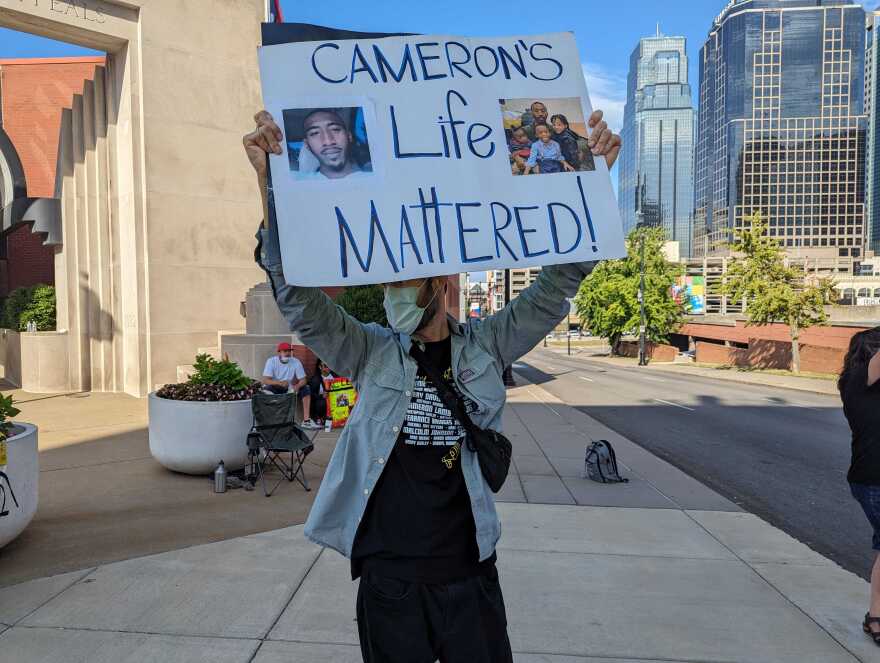A former Kansas City Police detective violated a Black man’s constitutional rights when he entered his property and fatally shot him, a federal judge ruled Wednesday, opening the door for monetary damages in the family’s wrongful death civil suit.
U.S. District Judge Beth Phillips ruled that Eric DeValkenaere, who is currently sentenced to six years in prison, violated 26-year-old Cameron Lamb’s Fourth Amendment rights when he entered his property without a warrant or other legal reasons.
The ruling came in the $10 million civil lawsuit filed in June 2021 by Lamb’s mother, former partners and children against DeValkenaere and the KCPD Board of Police Commissioners. Phillips didn’t rule on damages, saying only that they are pending.
John Coyle, an attorney for Lamb's family, said the family was grateful for the ruling "and are hopeful that this finally brings the (police) board to recognize this tragedy and do right by Cameron’s family."
DeValkenaere was found guilty of second-degree involuntary manslaughter and armed criminal action by a Jackson County judge in November 2021 for killing Lamb. In March 2022, DeValkenaere was sentenced to six years in prison, though Gov. Mike Parson has said he is considering some kind of pardon or commutation.
The Fourth Amendment question was front and center in the original state trial, and an appeals court determined that DeValekenaere kicked over a barricade to enter the backyard. A reasonable officer in DeValkenaere’s position would have known he could not go into the backyard, Phillips wrote.
“Thus, the uncontroverted facts demonstrate DeValkenaere accessed the property via means not accessible to the public, in that he bypassed and removed barricades intended to prevent people from coming into the backyard,” she wrote.

Phillips went further and rejected DeValkenaere’s claims of qualified immunity, a doctrine that protects state and local officials from individual liability unless the official violated a clearly established constitutional right.
KCPD doesn't "comment on pending litigation to ensure fairness to both sides," Sgt. Phillip DiMartino said.
The civil lawsuit was filed on behalf of Lamb’s mother, Laurie Bey, three former partners and their children. It claimed that KCPD had a well-documented and widespread pattern of using excessive and often deadly force, failed to train officers, and emphasized an “us-against-them” mentality over the fair enforcement of the law.
KCPD has since changed how it investigates cases where officers are accused of shooting or killing someone, and now calls in an independent law enforcement agency.




